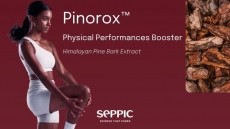Willow Biosciences to start pilot production of biosynthetic CBG in Q3

The cannabinoid is being produced via fermentation using a proprietary yeast strain, in collaboration with its development partner, Albany Molecular Research, Inc. (AMRI).
“We will be the first company to biosynthetically produce material amounts of cannabinoids when our samples of CBG are ready in Q3 of this year,” said Trevor Peters, Willow's Chief Executive Officer. “This is a significant milestone for Willow and is a result of 16 months of hard work and scientific breakthroughs from our science team.
“This pilot is ahead of schedule in part due to our industry-leading science team, but also due to strong demand from major global consumer packaged goods entities. In our discussions with companies manufacturing consumer products with cannabinoids as ingredients, it is clear that there is significant demand for ultra-pure, pharmaceutical grade cannabinoids.”
While CBG cannot be produced in appreciable amounts in the pilot facility, the proprietary yeast production process is expected to be able to produce commercial quantities, said the company.
Willow anticipates being able to commercialize CBG in the first half of 2021 and is in the process of selecting its manufacturing locations.
“An often-forgotten benefit of our production method is assurance that there will be no exposure to environmental contaminants (especially pesticides, heavy metals from the soil), and a vast array of other substances which at no stage are a part of the production process, yet are currently of concern to any discerning customers who is sourcing cannabinoids via current botanical cannabis means,” added Peters.
“Based upon a large number of meetings with prospective customers in the food, beverage, nutraceutical and personal care space, we are hearing very clearly from them that they are looking to buck the current trend of cannabinoid sourcing in order to make products that use ingredients such as ours which are safe, reliable and support optimal customer satisfaction.”
CBG
CBG is a non-psychoactive cannabinoid, and from a structure/function standpoint, it interacts with the body’s endocannabinoid system by activating CB1 and CB2 receptors.
Data published on CBG in influential medical journals supports the cannbinoid’s potential to help regulate mood by boosting anandamide, to support eye health, to confer neuroprotective properties, reduce pain and inflammation, and influence appetite.
“Although CBG research may be considered by some to still be in its formative stage, it sounds very promising and we know that as regulatory hurdles are settled and the ease at which cannabinoids can be shipped cross border and be allowed to be studied by more research institutions, the science will come flooding in,” said Dr Chris Savile, Willow’s Chief Operating Officer.
CPG
Willow has already had discussions with stakeholders in the nutraceutical, personal care, food and beverage industries, and believes that CBG has the potential to be as impactful to the recreational, health and wellness landscape as CBD (cannabidiol).
“To a very large degree we will look upon this time as a watershed moment for our industry. We will finally be able to pivot to a variety of cannabinoid choices that best match our customers’ needs. Through our manufacturing methods we can achieve these solutions, and continue to assure our customers of category-altering purity, quality and safety,” said Dr Savile.
Regulatory landscape
Commenting on the regulatory landscape, Peters noted that this is a difficult question to answer as most of the attention is squarely placed on CBD. “However, it is prudent that CBG manufacturers assume the same scrutiny as CBD and work accordingly to meet the same regulatory guidelines,” he said.
“FDA indicated a willingness to permit CBD and other cannabinoids in drugs, dietary supplements and food if inclusion of CBD and cannabinoids is shown to be safe. However, FDA also stated that it is constrained under law in permitting CBD in dietary supplements and foods because CBD has been the subject of clinical studies that are publicly available for an approved new drug (Epidiolex),” he said.
“For FDA to permit CBD use in dietary supplements and food under the Food, Drug and Cosmetic Act (FDCA) as currently constituted, FDA must promulgate regulations through notice-and-comment rulemaking – a process it estimates will take 3-5 years. CBG would not currently fall under this drug preclusion rule, but the FDA would likely want to see similar safety data as required for CBD.”
















